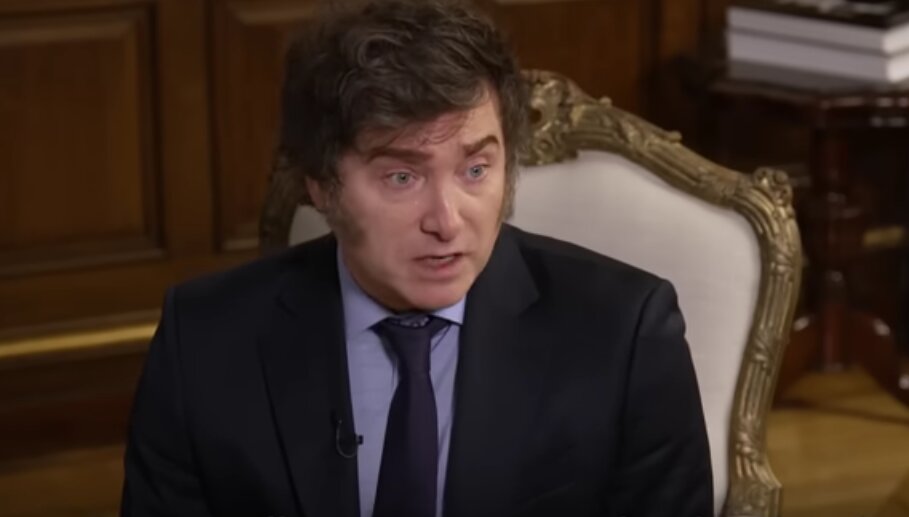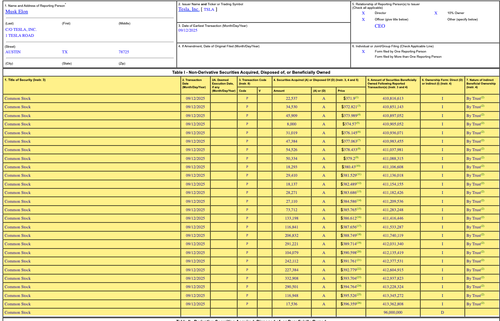Marcin Rey (also performing as Marcin Ludwik Rey), is simply a self-proclaimed huntsman of alleged Russian agentry in Poland. For years he has been moving various social media sites to exposure people who express different views than Marcin Rey, as Kremlin agents, etc.
Perhaps most, if not the full editorial board of “Polish Thoughts”, were the subject of unspeakable attacks by this gentleman, who set himself on the cathedral of omnipotence and omniscience, and an arbitrator giving out times, stigmatizing people and deciding de facto about their regular day. Col. The Editor-in-Chief (presented almost as a capo di tutti capi) and I Rey powerfully connected, for example, with the Association of the Faithful of Sovereign Poland (which I do not really know to be registered, let alone to talk of belonging to it) and drew from here (i.e. from nothing, possibly from his imagination) conclusions about my Streicher anti-Semitism, which was taken by the late J. Targalski and "Kurier Wnet". A full group of our colleagues and acquaintances were marred by this individual affected by a known illness of this kind of people – the grandios mania. Col Tadeusz Kowalczyk he was a “traitor in Polish uniform”, Rey besides picked on, among others. Col. Monika Karbowska from France or Kol. Zbyszka Sekulski. Everything agrees with him, teeth, so we are all an organized group of Moscow agents aiming at creating the point of sighs of all this individual – Ukraine.
Rey on his profile on 21 March 2022 attacked a teacher from Sosnowiec, p. Joanna Lamprechtwhich resulted in a wave of hatred for her and, fortunately, temporary problems at work. The Katowice-East territory Court ruled in its judgement of 7 March 2024 that Marcin Ludwik Rey was guilty of defamation of Joanna Lamprecht and ordered a fine of PLN 1,600, a payment of PLN 2,000 to Joanna Lamprecht, and the payment of expenses and costs related to the trial, and the transportation of the judgement to the public by posting on the board of notices of the court for a period of 14 days.
Both Rey, his protector and Joanna Lamprecht themselves, appealed against the sentence. The appeal court rejected all appeals. We have a justification for the appeal court, which is worth quoting, given that censorship has been unofficially returned in Poland (e.g. by blocking the Polish thought website), which is in clear contradiction with the existing constitution, preparations are being made for the introduction of government limiting freedom of speech and conscience, and in mainstream media, the most utmost epithets applied to all persons with different views (i.e. not even pro-Ukrainian) from imposed by these media. People are stigmatized, fired from work (in apparent conflict with anti-discriminatory labour law) etc.. Marcin Rey is 1 of the cogs in this hatred and enslavement machine. That is why it is so crucial to item a number of points from the reasoning of the appeal court. Here they are:
"In his individual appeal, the suspect presented the communicative of the "Party of Change" and pointed to the figures of M. Piskorski and T. Jankowski, claiming that from the second the private prosecutor was to accept congratulations on the content of the judgement of the court of First Instance. The remainder of the arguments raised by the defendant’s appeal concern the presentation of subjective assessments relating to the consideration of the political trend to which the private prosecutor’s views are most akin and the justification of the defendant’s position on the subject. However, the analysis of the political views of the private prosecutor regarding the political parties presently operating in Poland does not stay in any relation to the subject substance of this proceeding."
"The appeal court besides failed to leave out the contents of the articles and entries included on the profile "The Ukrainian is NOT my brother". These contents, which were unquestionably formulated by Jolanta Lamprecht, due to the fact that they were signed by her name and surname, are within the limits set by freedom of speech. These statements, signed by the name of a private prosecutor, contain only subjective and critical assessments of the Polish government's policy towards Ukrainian refugees and their privileges and the same assessment of individual historical events, to which the private prosecutor has the right. The above statements of a private prosecutor are free from calling for hatred against national or cultural background, and only specified statements are subject to penalisation, not to expressing criticism about actions taken by Polish or Ukrainian authorities. The simplification would be the party. that whoever does not present political views consistent with the views of the accused and criticises Polish government granting certain privileges to war refugees from Ukraine must represent the interests of Russia.”
"The accused in the appeal besides states that it does not constitute defamation of the reflection and description of the fact that there is simply a temporal convergence between the activity of the profile "Ukrainian is NOT my brother" and the outbreak of the Russian-Ukrainian War on February 24, 2022. Indeed, noting and describing specified a fact does not include signs of defamation. Thus, if the suspect had limited his entry into specified facts, leaving the conclusions to his readers, he would not have exhausted the characteristics of the crime attributed to him. However, the defendant's entry did not limit itself to that. In the entry of March 21, 2022, the suspect made it clear that the private prosecutor had been active in the Russian services' ‘instrument’ before the planned invasion of Ukraine, and that she was so 1 of the people who formed ideological facilities to justify the Russian invasion, for that is how the suspect utilized the word ‘institution’ in the entryIt’s okay. ” The suspect himself in the course of the proceedings denies that there was a change organization and rightly pointed out that this organization was never registered as a political organization and had no formal character. However, in the entry he explicitly stated that the private prosecutor is "presumably an activist of the Prokremlian organization Change". Here, the accused did not explain to his readers that specified a organization did not be and does not exist, but posted an entry indicating that the political organization "Change" exists that it is prokremlovic and that the private prosecutor is active in this party. Thus, the suspect has led to the belief that the private prosecutor has taken up activity in certain structures sympathetic to the current Russian policy."
‘The appeal court besides failed to find the merits of the charges contained in the defendant's appeal. The allegation of an image of the provisions of the procedure, i.e. Article 410 of the Code of Conduct, is based not on facts arising from evidence but on the defendant's defence line, based on conjecture. It should be understood that the charge based on the fact that the court of First Instance was not to draw conclusions from the fact that J. Lamprecht was to participate in the online discussion, defending the leader of the organization "Change" of M. Piskorski against the charge of embezzlement of funds which he was to receive from Russia for his activity in Poland and by omitting the fact that J. Lamprecht was co-authored alongside, among others, M. Piskorski and T. Jankowski's book, Ukraine in fire". However, the documentation submitted to the case file shows nothing more than that the private prosecutor took part in an online discussion, in which she expressed her doubts about the anticipation of embezzling money by the above-mentioned person. Under no circumstances does she state that the arguments indicated in the defendant’s entry of 21 March 2022 are justified. On the another hand, referring to the publication cited by the appealer, it is clear that from the widely available online information it is clear that the above book is simply a selection of publications by many authors, not only the above mentioned people, but besides the subject of the current war in Ukraine and the Polish context of this war, The proposals propose a policy that coincides with the current Hungarian policy."
‘[...] it should be pointed out that the defendant's entry of 21 March 2022 was not of an evaluation nature, and in this respect the considerations are already set out above. After all, we besides talk about defamation erstwhile any information is given, even if only in the form of suspicion or repetition of rumors, whether or not they were intentionally invented by the defamer, whether in circulation or in the form of a circumstantial accusation. Moreover, no criminal charges are necessary. so that those who make specified negative comments may consider them true. It is adequate that the defamator wanted or agreed that his words should be accepted as such. The discussion may besides be hypothetical, i.e. referring to the suspicion of a criminal offence or to the characteristics of the victim."
‘The suspect did not have at the time of publication of the above-mentioned data which would indicate the existence of the facts presented by him or justify the assessments presented. No compelling circumstances regarding the existence of published facts or claims, specified as assessments concerning Jolanta Lamprecht's figure and conduct, were besides disclosed throughout the course of the proceedings. In this proceeding, evidence of the facts and evidence essential to show whether there were circumstances justifying the content of the assessments expressed in the entry of 21 March 2022 by the suspect was carried out. As a consequence of these actions, it was found that the allegations raised by the accused in public, in the mediate of mass communication, were incorrect and according to the disclosure of evidence. The findings of the Court of First Instance leave no uncertainty that the facts which the accused informed in his entry did not occur. The accused has exceeded the limits of the right to criticism and the right to freedom of expression. In this case, his opinion had no basis, nor in the facts presented above, nor in any another event.
Definitely a negative assessment of a private prosecutor has undermined her work evidence in public and presented it as an unreliable individual needed to execute her professional duties and the private prosecutor has suffered this consequence. In specified proceedings, it must be objectionable to carry out a ‘journal mission’ in public service. The defendant’s conduct in the present case illustrates how the preemptive intent may make circumstances which do not give emergence to circumstantial conclusions possible, simply by giving emergence to religion in the sole right of his own views, as defamatory charges.
To rise objectively false allegations, regardless of whether it is due to inaccuracy, infidelity and irresponsibility, or the deliberate usage of untruth, does not prosecute the thought of freedom of expression and remains beyond the limits of acceptable criticism. Nor does it service to defend any socially legitimate interest. It can only service the ad hoc interests of defamatory, and never the public interest, which does not benefit from any false information that misleads the public and so cannot be utilized according to that interest, due to the fact that it does not contribute to the description of reality. On the contrary, false information is detrimental to this interest, undermining the assurance of the recipient of the information.’
‘[...] It is clear that any individual taking advantage of the chance to print defamatory statements in the mediate of social communication is more liable on the basis of this provision. Freedom of expression, on the another hand, is not equivalent to the right to full freedom, nor consent to the action of the free tribunal of verbal evil, but is simply a affirmative value of mature and liable freedom."
The Court of Appeal supports its argument by quoting from the ultimate Court ruling of 22 June 2004: “Untruth does not prosecute the thought of freedom of expression and serves no another value, and thus besides the defence of a socially legitimate interest, for doing evil is not good. Nor does the recipient of the information anticipate it, since it does not exercise its right to fair information but ignores it, disinformations it and treats it as such. The thought of freedom of expression is untrue, depreciating its very essence. Another knowing of freedom of expression, including the right to criticism, would express approval for the continuous simplification of cultural standards and the simplification of the level of decency, sensitivity and accountability."
The appeal court concluded the grounds by stating: "Both procedural parties should accept the fact that there are individuals who do not share the views presented by each of them, including political or planet views, who have the right to present them in public space until they exhaust their behaviour with the signs of criminal acts. The court in this proceedings does not deal with the subjective sense of harm felt by each of the parties to the proceedings due to their differences of view and their substantive arguments, which they mention to justify their view of the world, political or historical. The court interferes only under the law. According to the appeal, both the suspect and the defendant. As well as the private prosecutor, they demanded a solution as to the merits of the arguments they usage by conducting their online publicist activity. However, this is not the case in this criminal proceedings, as ideological disputes between the parties are not the subject of this proceeding."
It is to be glad that, contrary to the ubiquitous public space, and therefore, besides in the feeling of millions of Polish citizens, negative assessments of the Polish judiciary, we are dealing with decisions specified as the Katowice-East territory Court and with specified justifications as the above-mentioned justification of the Court of Appeal. Although to any degree they reconstruct assurance in as crucial a part of justice as courts are. In the present case, the courts have stood on the ground of defence of freedom of expression and its article, stating clearly that the infantile conviction of individual that his views are simply right, ergo, universally applicable, cannot be accepted as any criterion for assessing the right to freedom of speech of others.
The court besides pointed to the deficiency of freedom of speech in the event of untruth. This leads to the conclusion that people specified as Rey and his like, even in a common atmosphere of defamation and stigmatizing people who have different views than ‘established’, do not have the right to usage lies to humiliate their political and ideological enemies, and to treat them mildly due to that atmosphere. Finally, the court reminds us that, although it has mostly devoted its consideration to Mr Rey, the above rules apply to all parties to the dispute. Keep this in head and never lose sight.
Adam Laughter
Think Poland, No. 41-42 (6-13.10.2024)


















